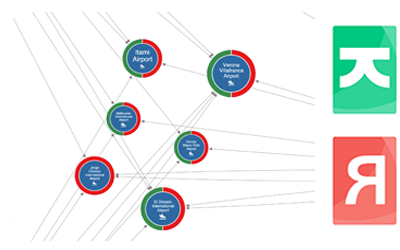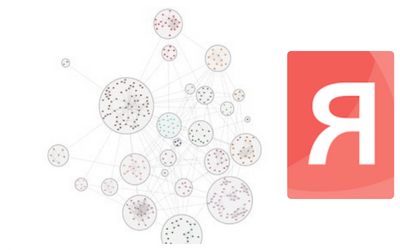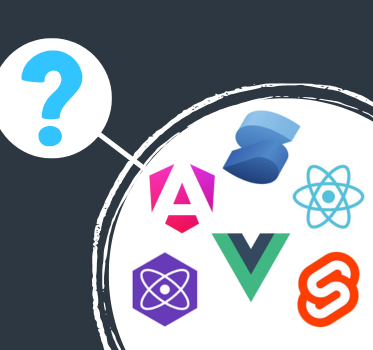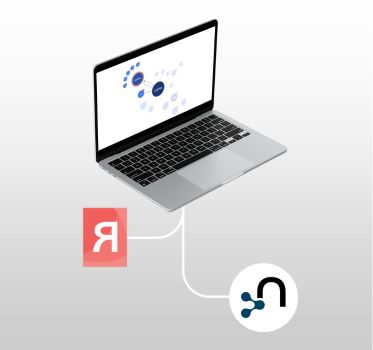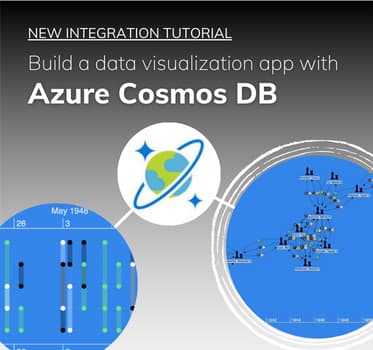
Visualizing Elasticsearch
Build powerful graph & timeline tools with Elasticsearch
Give users the graph insights they need
Our developer toolkits make it quick and easy to build graph and timeline visualization apps, powered by Elasticsearch.
They combine performance with a hassle-free developer experience, and provide a completely flexible way to create graph and timeline visualization UIs that work anywhere, on any device.
They also integrate seamlessly with the Elastic stack, giving your users an intuitive and interactive way to visualize and explore the data they need to understand.

About our toolkits
Our toolkits – KeyLines, ReGraph and KronoGraph – are software development kits (SDKs) for graph and timeline visualization.
They make it easy to create powerful interactive visualization tools that bring your data to life. These tools can then be rolled into your existing workflows and products, helping your users to explore and understand their data.
Our SDKs are 100% database agnostic, but integrate seamlessly with Elasticsearch. They also work with any browser, device or server, leaving you free to choose the stack that works best for you.
Building Elasticsearch timeline and graph visualization tools
Whatever your stack, we have an integration tutorial to get you started.
Learn how to create graph visualization applications that empower users to see, explore and understand their data.
KeyLines: Graph visualization for JavaScript developers
Enjoy the flexibility to code how you like. Add graph visualization to your applications that work anywhere, as part of any stack. This tutorial also works for ReGraph.
Why do Elasticsearch users choose our toolkits?

The fastest route
We design our toolkits with a fast developer experience in mind.
Equipped with our demos, coding playgrounds, comprehensive docs and expert support, your Elastic-powered graph visualization tool will be up and running in no time.

An easy integration
Elastic includes a powerful REST API, meaning integration with our toolkits is fast and simple.
We also have a JavaScript and React-specific example to get you started.

Deliver the best UX
Our toolkits let you customize every aspect of your application – from branding to functionality.
The result is useful, insightful experiences your users value, and your competitors envy.

Powerful functionality
From timelines to centrality measures, automated layouts to geospatial maps.
Our SDKs have a huge range of visualization functions and analysis algorithms to uncover insight in your most complex datasets – power that’s amplified when paired with the fast search functionality of Elastic.

A trusted partner
We’ve been the leading provider of graph and timeline visualization technologies since 2011.
Hundreds of organizations worldwide rely on our toolkits – from pioneering startups to Fortune 500s and national governments.

Harness our innovation
We work year-round creating new features, ready to roll into your apps.
Keep customers happy and competitors on the back foot with constantly-improving, beautiful and unique visual analytics.
Ready to build your Elastic data visualization app?
Who uses our toolkits?
Follow in the footsteps of over 300 organizations already using our toolkits to build and deploy powerful graph and timeline visualization applications.
Elasticsearch Visualization FAQ
Elasticsearch is a fast and scalable search engine technology. It’s one of several open source tools that make up the “ELK” stack, alongside Logstash, Kibana and Beats.
The power and simplicity of Elasticsearch makes it popular with organizations that need to index and search very large volumes of data. It counts Facebook, Wikimedia and Stack Exchange among its users.
It supports near real-time data searching on a petabyte scale, using a system of sharding and routing to scale outwards from the beginning.
Whilst it’s not a database, Elasticsearch (and other components of the Elastic and ELK stacks) are easy to integrate with our SDKs – either as data stores, UI frameworks, or even to extend on Elastic’s native visualization tools.
The “K” in ELK stack stands for Kibana – Elastic’s own powerful visual data analytics product. It’s a general-purpose visualization tool, designed to run data analytics at scale and speed for both developers and end-users.
You might find the generic, mostly aggregated, visual analytics provided by Kibana is insufficient for your use case. If you need to ship powerful and customized interactive graph and timeline visualization functionality to your end-users, our toolkits – KeyLines, ReGraph and KronoGraph – might be a better fit.
KeyLines is our JavaScript software development toolkit (SDK) for graph visualization. It makes it quick and easy for JavaScript developers to build custom, powerful and interactive graph visualization tools. These can be rolled into your existing products and shipped to unlimited end-users.
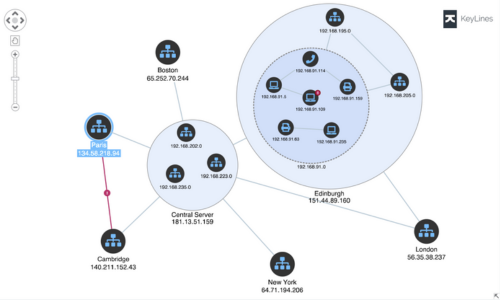
ReGraph is our React SDK for graph visualization. It offers the same performance, scalability and end-user functionality as KeyLines, but is specifically designed for React developers.
Every aspect of the SDK is optimized to feel as ‘React-native’ for the developer as possible, including fully-reactive components, state and data flow management and JSX-coded elements with clear syntax.
KronoGraph is our SDK for building interactive timeline applications. It comes with both plain JavaScript and React APIs.
The timelines built with KronoGraph reveal how events unfold over time, including heatmap views, individual event views, and intelligence data aggregation.
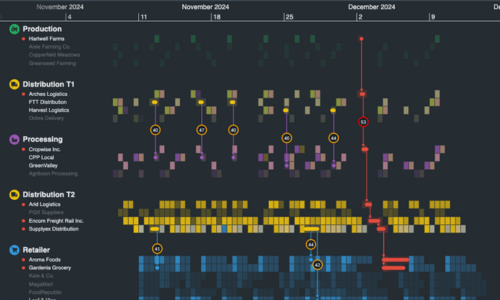
The toolkits are front-end JavaScript components, and can harness the Elasticsearch in a variety of different ways. Some of the ways our customers have used the Elastic stack include:
- Replicating the functionality of a graph database with Elastic Graph
- As a front-end search tool for graph and timeline applications
- Extending the native capability of the Kibana visualization tool with custom graph and timeline visualization.
Our tutorials demonstrate some of these options, but let us know if your requirements aren’t covered.
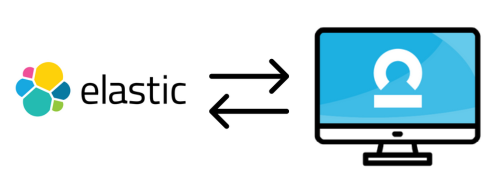
Hundreds of organizations worldwide use our toolkits to make sense of complex connected data. Their industry sectors include: security and intelligence, law enforcement, fraud detection, infrastructure management and cyber threat intelligence.
If you’re not ready to get started yet, take a look at our blog. You’ll find useful information on all aspects of data visualization and best practice.
That’s easy! Request a free trial
